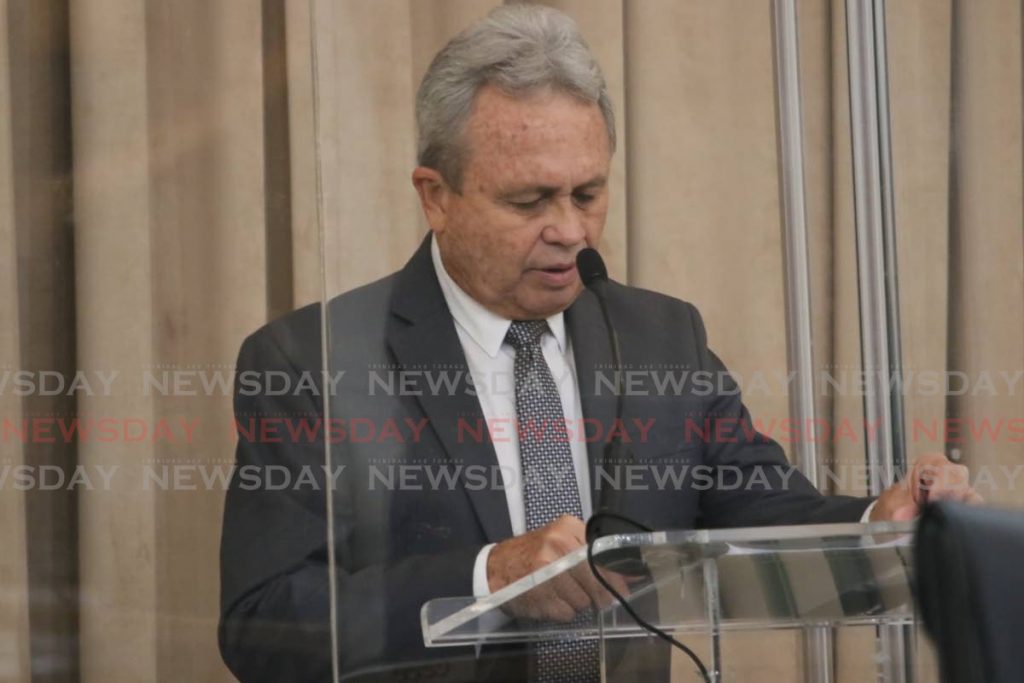Imbert’s successful management

THE EDITOR: Anticipated political condemnation aside, stemming from yet another motion of no confidence, I would like to take a look at some key features of the tenure of the Minister of Finance, assessing some of his decisions based on the circumstances of this country.
When Colm Imbert became Finance Minister in 2015, energy prices were in a free fall, led by oil prices which had effectively collapsed. The previous government, having presided over this decline, failed to make the necessary adjustments and was still spending at levels of over $60 billion a year, when revenue had fallen below $50 billion. Further, the fall in energy production, low prices and poorly conceived tax concessions caused energy companies’ tax revenue to fall from over $17 billion to $1 billion by 2017, according to the Central Bank.
Faced with this perfect storm and an economy already in decline, the task of this Finance Minister was to ensure that our deficit (difference between spending and earning) did not balloon our debt to the point where we were unable to pay it. If you are unable to pay your loans, the banks come knocking, This is the same for countries, with the ultimate knock coming from the IMF.
The only way to avoid this would be to curb spending to levels closer to what we earn. Slowly, over a period of years, we were able to bring spending to more sustainable levels of around $50 billion a year, thus avoiding default.
While some economists argued for wider cuts, or even drastic measures like devaluation, I think the way this was done cushioned the impact on the most vulnerable in society and maintained employment, while achieving the necessary adjustment.
Another challenge the minister faced was the lack of foreign exchange. Faced with the decline in foreign exchange inflows due to reduced energy company tax payments, it became imperative to not only preserve existing foreign exchange reserves but to manage its use.
Though difficult, this has been done in various ways. Today, reserves stand at about US$7 billion while the Heritage and Stabilisation Fund is higher than it was in 2015, at roughly US$6 billion.
Due to the international shocks, and the resulting decline in economic activity, it has been difficult to traverse risks posed. Economic growth in this country is largely dependent on the energy sector and government expenditure. With both suppressed, growth had been stymied. However, the minister’s ability to navigate this country amidst the economic challenges and headwinds, while making substantial changes in our fiscal profile, must be commended.
Still, by 2019 both the energy and non-energy sectors were showing signs of recovery while the IMF was projecting a return to growth. Then we were hit by the dual shocks of covid19 and another collapse in energy prices.
In navigating this crisis, the minister has focused on protecting the most vulnerable in society, while providing necessary business and industry support, on dwindling revenue. In this delicate balancing act, faced with ever more difficult circumstances, the minister continues to perform well.
As if to accentuate the prudent economic management, despite the high risks, the Economist magazine ranked TT 15th in financial strength, amidst the economic fallout of the covid19 pandemic, in 2020.
While risks are high, as it is globally, this country continues to be steered well as we confront this crisis. Credit must be given to the Minister of Finance, who I have confidence in to continue making the right decisions for our economic present and future.
VYASH NANDLAL
Couva


Comments
"Imbert’s successful management"